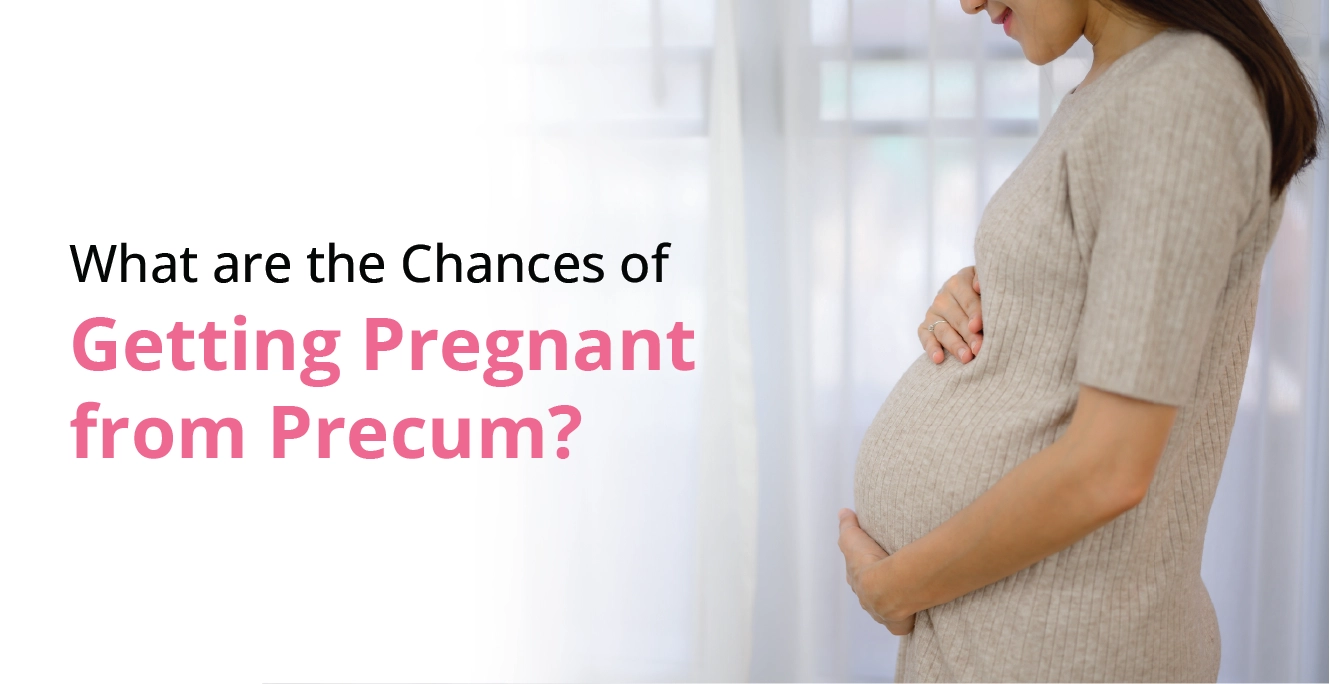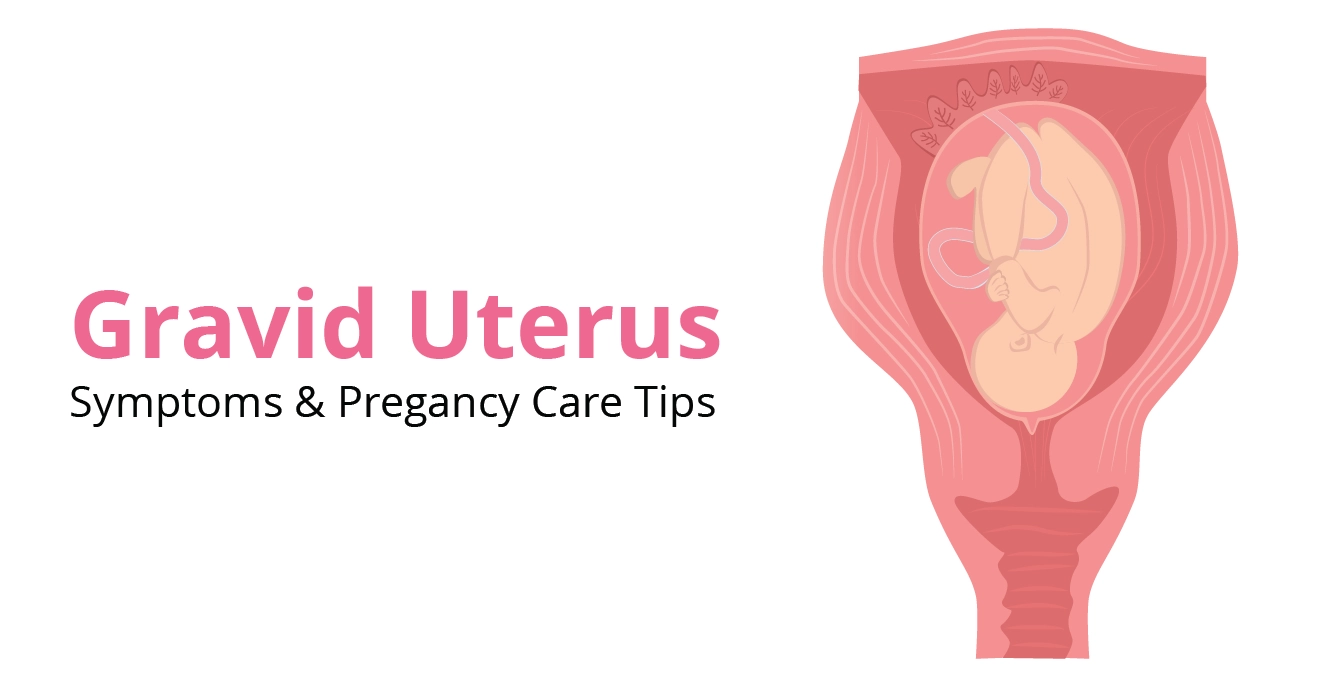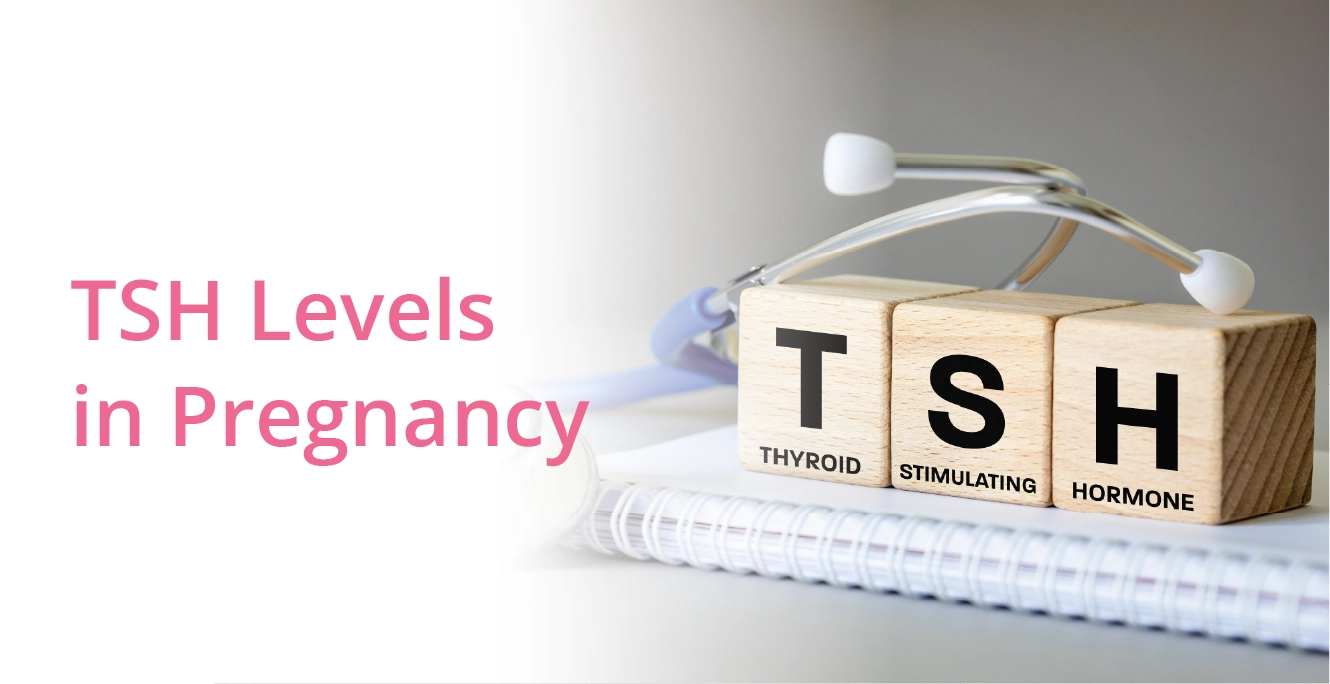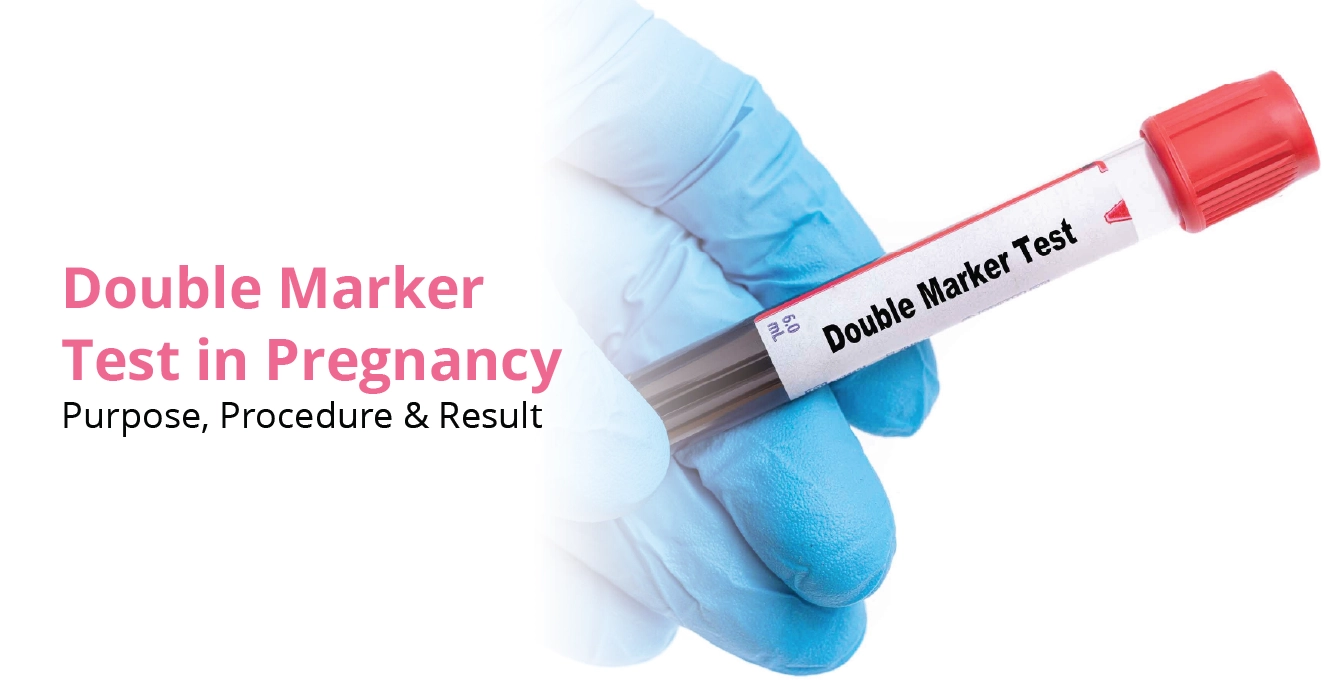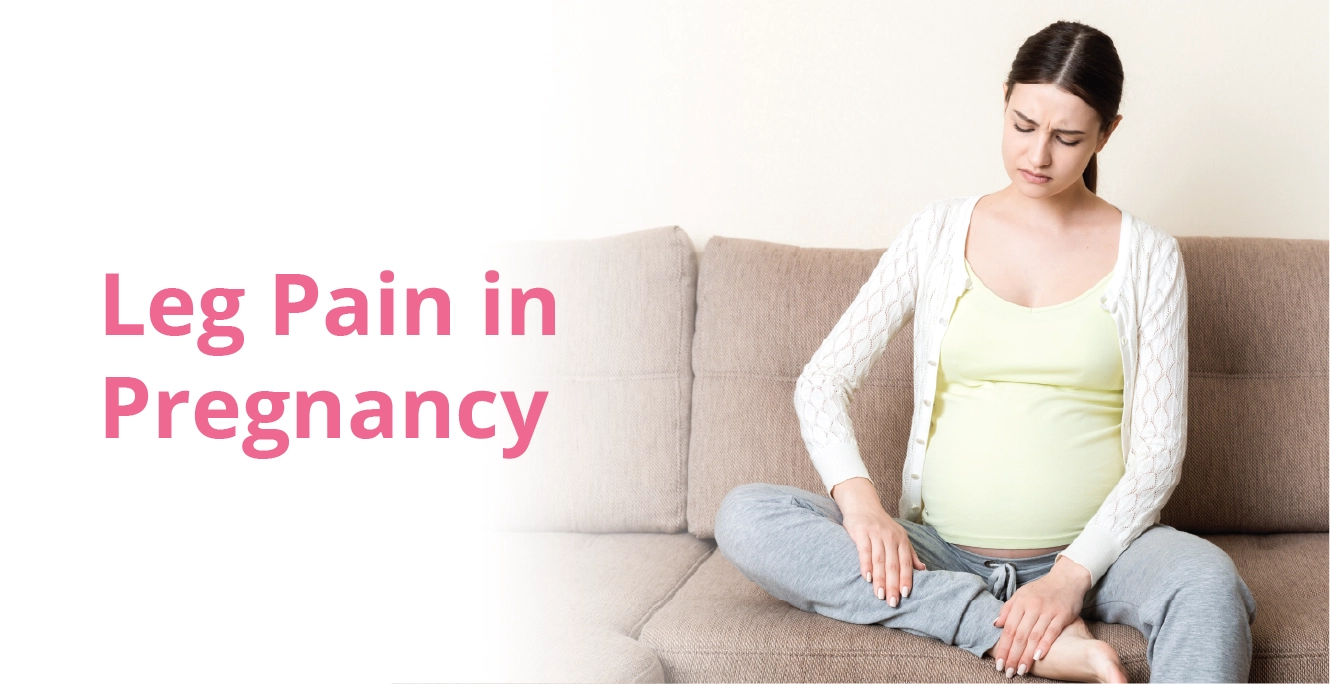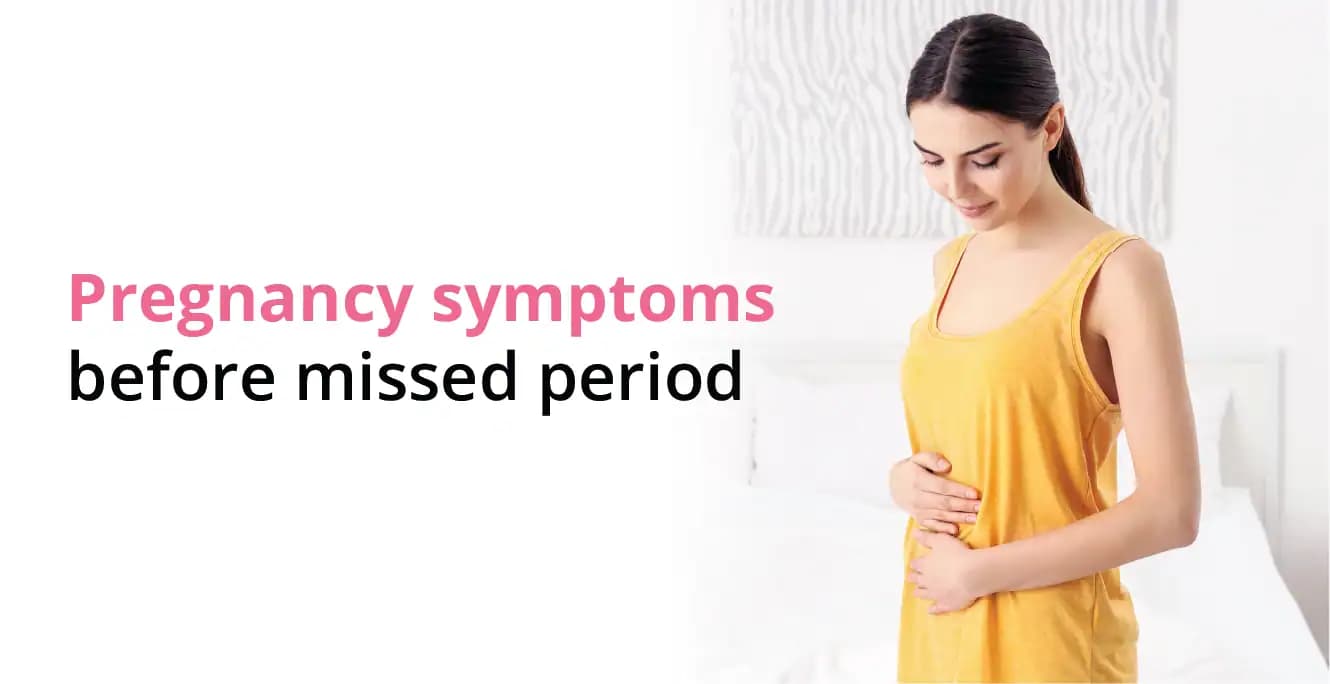
Early Signs of Pregnancy Before a Missed Period

Table of Contents
- Key Takeaways
- Implantation and Hormonal Changes
- Benefits of Symptom Tracking
- Pregnancy Signs Before a Missed period
- Early Pregnancy Symptoms 1 Week Before Period
- Is dryness a sign of period or pregnancy?
- Distinguishing between PMS and pregnancy symptoms
- Confirming Pregnancy
- When to consult a doctor
- Comprehensive Prenatal Care
Key Takeaways
-
Earliest Signs of Pregnancy: Subtle symptoms such as fatigue, nausea, breast tenderness, bloating, and light spotting may appear before a missed period due to hormonal changes like rising hCG and progesterone levels.
-
Symptom Tracking Benefits: Monitoring physical changes helps distinguish between PMS and pregnancy, promotes timely consultations with healthcare providers, and encourages better self-care practices.
-
PMS vs Early Pregnancy: Symptoms like implantation bleeding, persistent fatigue, and breast darkening can help differentiate pregnancy from typical PMS signs.
-
Confirming Pregnancy: Home pregnancy tests are most accurate after a missed period. For earlier confirmation, blood tests measuring hCG levels are more reliable.
-
Early Prenatal Care: Once pregnancy is confirmed, early prenatal care, including starting prenatal vitamins and routine screenings, ensures a healthy pregnancy and timely detection of complications.
When you’re trying to conceive, every little change in your body can feel like a potential sign of pregnancy. But with so much information out there, it can be hard to know what to look for and when. If you’re wondering whether you might be pregnant even before your missed period, you’re not alone. Many women experience subtle symptoms in the earliest stages of pregnancy that can be easy to miss or dismiss as something else. In this article, we’ll explore some of the most common pregnancy signs before a missed period and help you understand what to expect in those first few weeks.
Implantation and Hormonal Changes
When a fertilised egg implants in the uterine lining, it triggers a cascade of hormonal changes that can cause early pregnancy symptoms. The hormone human chorionic gonadotropin (hCG) starts being produced by the developing placenta shortly after implantation. As hCG levels rise, it can cause symptoms like nausea, fatigue, and breast tenderness.
Progesterone, another key pregnancy hormone, also increases rapidly after implantation. Progesterone helps maintain the uterine lining, supports foetal development, and can contribute to symptoms like bloating and mood swings.
These hormonal shifts typically occur 6-12 days after fertilisation, which is why some women may notice symptoms before their missed period. However, every pregnancy is unique, and not all women will experience noticeable symptoms this early.
Did You Know!
Before a missed period, some women might notice subtle pregnancy symptoms like a heightened sense of smell. This sensitivity to odours is due to hormonal changes occurring soon after conception and can sometimes be the first clue to pregnancy before any other symptom appears.
Benefits of Symptom Tracking
Tracking symptoms, particularly in the context of pregnancy, offers numerous benefits that can significantly enhance personal health management.
-
Understanding changes: By monitoring physical and emotional changes, individuals can identify early signs of pregnancy, such as breast tenderness, fatigue, and mood swings. Recognising these symptoms early can lead to timely consultations with doctors, ensuring appropriate care and support during this critical period.
-
Differentiating symptoms: Tracking helps distinguish between PMS and early pregnancy symptoms. Many signs overlap, but careful observation can clarify whether one is experiencing PMS or the early stages of pregnancy. This distinction is crucial for those trying to conceive, as it allows for informed decisions regarding next steps
-
Promoting self-care: Keeping a detailed record of symptoms fosters better self-care practices. Individuals can adjust their lifestyle and emotional well-being based on their observations, leading to improved overall health. This proactive approach empowers individuals to take charge of their reproductive health and enhances their readiness for potential motherhood.
Pregnancy Signs Before a Missed period
Even before you miss your period, your body may start giving you subtle clues that you’re pregnant. While these signs can be easy to miss or misinterpret, paying attention to changes in your body can help you detect pregnancy early on.
Earliest pregnancy symptoms before missed period
Several physical changes can occur in the early days of pregnancy, even before you realise you’ve conceived. Here are some of the most common pregnancy symptoms before a missed period:
| Symptoms | Description |
| Fatigue | Feeling tired or exhausted, even after getting enough sleep |
| Nausea | Feeling queasy or sick to your stomach, especially in the morning |
| Breast changes | Breasts may feel tender, swollen, or heavy; areolas may darken |
| Frequent urination | Needing to pee more often than usual |
| Bloating | Feeling bloated or constipated due to hormonal changes |
It’s important to note that these symptoms can also be associated with premenstrual syndrome (PMS) or other health conditions. If you suspect you might be pregnant, taking a pregnancy test is the most reliable way to confirm.
Early Pregnancy Symptoms 1 Week Before Period
In addition to the symptoms listed above, in the week leading up to your expected period, you may observe several other subtle changes in your body that could indicate early pregnancy. These early pregnancy symptoms one week before your period can be quite nuanced, and understanding them may enhance your awareness of your reproductive health.
Changes in Cervical Mucus
As your body prepares for possible implantation, cervical mucus undergoes notable changes. Typically, after ovulation, cervical mucus becomes thicker and creamier, often appearing more abundant than usual. This change is primarily due to rising hormone levels, particularly oestrogen, which can cause the mucus to maintain a creamy consistency rather than reverting to its pre-ovulation state of being dry or sticky. Some women may find this increased mucus to be a significant indicator of their fertility status.
Basal Body Temperature
If you are tracking your basal body temperature (BBT), you might notice that it remains elevated after ovulation. Normally, BBT dips just before your period; however, if conception has occurred, it may stay high due to the hormonal changes associated with early pregnancy. This sustained elevation can serve as another clue that your body is preparing for a potential pregnancy.
Breast Changes
Breast tenderness and swelling are among the most common symptoms experienced in the lead-up to menstruation. However, if you are pregnant, these sensations may feel more pronounced due to increased blood flow and hormonal fluctuations. You might notice a tingling sensation or heightened sensitivity in your breasts, which can be attributed to the body’s preparation for nurturing a developing embryo.
Light Spotting
Around the time your period is due, some women experience light spotting or implantation bleeding. This typically occurs when the fertilised egg attaches itself to the uterine lining, which can result in a few drops of blood. Implantation bleeding is usually lighter than a regular period and may appear pink or brown rather than bright red. It is often accompanied by mild cramping but can easily be mistaken for an early or light period.
Fun Fact!
In some Indian cultures, traditional beliefs claim to predict pregnancy before medical confirmation by observing certain food aversions or cravings. These cultural practices are fascinating yet not scientifically validated methods for confirming pregnancy.
Is dryness a sign of period or pregnancy?
Vaginal dryness can be a sign of hormonal changes related to both menstruation and pregnancy. However, the type of dryness experienced may differ between the two.
Vaginal discharge changes
During early pregnancy, increased levels of oestrogen can cause the vaginal walls to thicken and produce more discharge. This vaginal discharge, known as leukorrhea, is typically thin, white, and milky in appearance. It may be more noticeable than usual discharge and can help prevent infections by maintaining a healthy balance of bacteria in the vagina.
In contrast, vaginal dryness before or during your period is often due to fluctuating hormone levels. Oestrogen levels drop before menstruation, which can lead to a temporary decrease in vaginal lubrication and moisture. This type of dryness is usually more pronounced and may be accompanied by discomfort or itching.
Distinguishing between PMS and pregnancy symptoms
Many of the earliest pregnancy symptoms before a missed period closely resemble those of PMS, making it difficult to determine whether you’re pregnant or about to start your period. However, there are a few key differences:
|
Symptom |
PMS |
Early Pregnancy |
|---|---|---|
|
Bleeding |
Heavier, menstrual flow |
Light spotting or implantation bleeding |
|
Breast changes |
Tenderness, swelling |
Tenderness, swelling, darkening of areolas |
|
Fatigue |
Mild fatigue, improves with rest |
Extreme exhaustion, persists throughout the day |
|
Mood changes |
Irritability, mood swings |
Mood swings, emotional sensitivity |
|
Cramps |
Lower abdominal cramps |
Mild cramping or twinges, often one-sided |
Confirming Pregnancy
If you suspect you might be pregnant, it’s important to take a pregnancy test for confirmation. Here’s what you need to know about timing and testing:
-
Wait until after your missed period: Home pregnancy tests are most accurate when taken after the first day of your missed period. Testing too early may result in a false negative.
-
Use first-morning urine: The concentration of hCG is highest in your first urine of the day, making it easier for tests to detect.
-
Follow test instructions carefully: Each brand of pregnancy test may have slightly different instructions, so read the package insert thoroughly before testing.
-
Consider a blood test: If you receive a negative result but still suspect you may be pregnant, consult your healthcare provider about a blood test. Blood tests can detect pregnancy earlier than urine tests and are more sensitive to lower levels of hCG.
-
Understand false results: While rare, both false negative and false positive results can occur. If you have a negative test but your period still doesn’t arrive, repeat the test a few days later. If you have a positive test but experience bleeding or severe pain, contact your healthcare provider immediately.
How to Confirm Pregnancy at Earliest Symptoms
If you suspect you may be pregnant based on early pregnancy symptoms, there are a few methods to confirm your pregnancy:
-
Home pregnancy tests: These tests detect the presence of hCG in your urine. HCG is a hormone produced by the placenta shortly after the embryo attaches to the uterine lining. Most home pregnancy tests can detect pregnancy as early as the first day of your missed period, with some claiming to be accurate even earlier.
-
Blood tests: Your doctor can perform a blood test to measure the level of hCG in your bloodstream. Blood tests are more sensitive than urine tests and can detect pregnancy earlier, usually around 7 to 10 days after conception.
-
Ultrasound: An ultrasound can visually confirm a pregnancy and determine how far along you are. However, ultrasounds are typically not performed until several weeks into the pregnancy, usually after a positive pregnancy test.
When to consult a doctor
If you suspect you may be pregnant or have confirmed your pregnancy with a home test, it’s important to consult with your healthcare provider. They can provide guidance on prenatal care, answer any questions you may have, and monitor your pregnancy’s progress.
Comprehensive Prenatal Care
If you’ve confirmed your pregnancy with a positive test, it’s essential to begin prenatal care as soon as possible. Early and regular prenatal care can help ensure a healthy pregnancy and identify any potential complications early on. Here’s what you can expect:
-
Choose a healthcare provider: Decide whether you prefer an obstetrician, midwife, or family physician for your prenatal care and delivery.
-
Schedule your first appointment: Most providers will schedule your first prenatal visit around 8 weeks gestation. However, if you have a history of pregnancy complications or underlying health conditions, you may be seen earlier.
-
Begin prenatal vitamins: If you haven’t already, start taking a prenatal vitamin containing folic acid, iron, and other essential nutrients to support fetal development.
-
Review your medical history: Your healthcare provider will ask about your personal and family medical history, medications, and any prior pregnancies to identify potential risk factors.
-
Expect routine tests and screenings: Throughout your pregnancy, you’ll undergo various tests and screenings to monitor your health and your baby’s development, such as ultrasounds, blood tests, and genetic screenings.
Regular prenatal checkups throughout your pregnancy will help monitor your health and the growth and development of your baby. Your doctor will also provide information and support to help you navigate the physical and emotional changes of pregnancy.
Word from an expert:
Recognising early pregnancy symptoms can help you seek prenatal care as soon as possible, which is essential for a healthy pregnancy. If you suspect you might be pregnant, trust your instincts and take a pregnancy test. Remember, every pregnancy is unique, and not everyone will experience the same symptoms. The most important thing is to listen to your body and work closely with your healthcare provider to ensure the best possible outcome for you and your baby.”
~ Dr. Aashita Jain
Our Fertility Specialists
Related Blogs
To know more
Birla Fertility & IVF aims at transforming the future of fertility globally, through outstanding clinical outcomes, research, innovation and compassionate care.
Had an IVF Failure?
Talk to our fertility experts

 Our Centers
Our Centers










